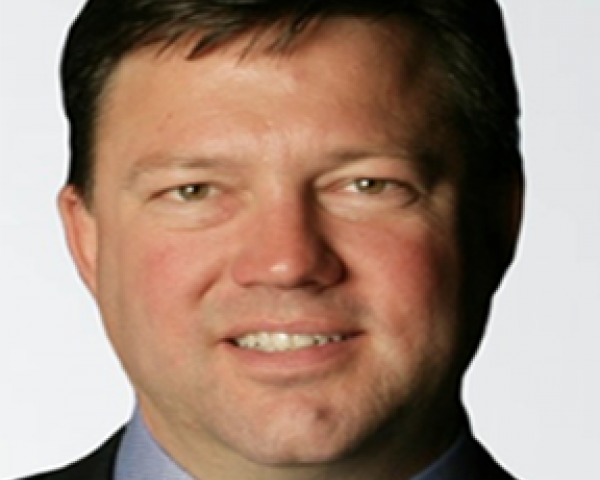Leaders will emphasize asking the right questions, not on getting the answers right -- after all, Google will have all the answers.
Let’s face it, most of us are addicted technology futurists. Who doesn’t enjoy speculating about what technology marvels will be commonplace in the coming decades? Will it be 3D printing? Artificial intelligence? The “singularity”? All are buzzwords of the emerging technology future.
But what about leadership? If we don’t get leadership right, all the bright shiny objects in the future will dangle beyond our reach. Will the tenets of great leadership change over time, and, if so, what will leadership look like 20 years from now?
Here are six major shifts I believe will mark how the most effective leaders will behave in 20 years:
1. Questions, Not Answers. Today’s leaders are addicted to answers. Corporations reward being right at the expense of just about everything else. We promote those who choose correctly, and those who don’t mysteriously disappear from the org chart. But with technology advances, answers are quickly becoming a commodity. Today you can Google just about anything – just imagine how efficient “search” will be in 20 years. Internal systems will capture corporate learning like never before, allowing you to tap deep into the set of corporate experiences. Of much greater value will be the ability to ask the right questions. In a chaotic situation, winning requires focus, and knowing where to focus will be determined by the questions you are asking. In the future, your effectiveness as a leader will be defined by your ability to ask the right questions.
2. Employee Pull. For nearly 100 years, leadership has been a top-down game. The Industrial Revolution brought about scale, and the only way leaders knew to manage this scale was through hierarchy. It was assumed that individuals could only effectively manage between 8 and 15 people, so as companies added more people they added more layers. But today’s marketplace moves and changes at great speed, and the inherent slowness of larger hierarchy is rapidly being trumped by the need for speedy, market-based decisions. Rather than having the “leaders on high” determining strategy and operational decisions and pushing them down through the organization, tomorrow’s winning organizations will delegate decision making authority to the “edge.” Decisions will not be pushed from the central command – they will be pulled from the edges of the organization, where the employees are closest to customers, and increasingly working directly in partnership with them. The most effective leaders will be those who embrace this extreme empowerment, while still effectively managing quality and risk.
3. Customer Pull. Like employee pull, the entire traditional “push” system of marketing will be turned on its head. Instead of executives in a wood-paneled conference room deciding on products and services to offer and then pushing those offerings out to the market, customers will make more and more of these decisions. Technology will make customization much more prevalent. Our experience when visiting websites will be unique to each of us. 3D printing will allow us to “materialize” what we consume in quantities of one. The Four P’s of marketing – price, product, place, promotion – will be controlled by a fifth and overriding factor – personalization. Leaders in this new marketplace will be those able to set up and manage systems of tools with which customers can interact and create. Great marketers will be replaced by great marketplace managers.
4. Chaos Learning. In global business, the last 20 years have been marked by leaders in pursuit of the elimination of variance. We ask our consultants to simplify the world into a 2×2 matrix, identify “best practices,” write detailed policies and procedures that limit behavior choice and hope that the current version of market reality lasts long enough for these changes to be effective. But stable reality is being replaced by constant change, and at an accelerating pace. Tomorrow’s most effective leaders will embrace this new, chaotic world. Planning will be replaced by intelligent reaction. Leaders will anticipate where the next disruption may come from and prepare for multiple scenarios (windshield, not the bug!). Instead of relying on proven static methods and processes, leaders will focus on building a learning capability, being comfortable with ambiguity, continually working within a changing landscape and anticipating and reacting to it with agility.
5. Focus on Growth. To put it bluntly, efficiency will become ubiquitous. It is going to be a price of entry in nearly every industry. Most activities that are currently labeled “operations” will be shifted to computers and robots (read: unemployment). And we will all have access to the same tools. As a result, the battle for competitive advantage will be fought and won based on growth – rewarding those companies that can consistently invent and commercialize new products and businesses. Leaders who excel will understand and reward the skills and behaviors that create growth and innovation. Examples include “fail fast” experimentation, rapid prototyping and continuous iteration.
6. Purpose. Purpose is important for leaders today. It will become increasingly vital in the future. We are entering a great age of empowerment for both employees and customers. Employees will demand the right to choose who they work for, which tribes they join and which products they associate with. Purpose will be the basis of much of this choice, and the greatest leaders will rally around missions that offer the chance to have dramatic positive impact.
So there you have my futurist vision: 20 years from now, great leaders will ask the right questions, let employees pull information and customers pull their desired products and services, organize for chaos, foster the behaviors of growth and guide the entire system toward a positive purpose.
I can hardly wait.


